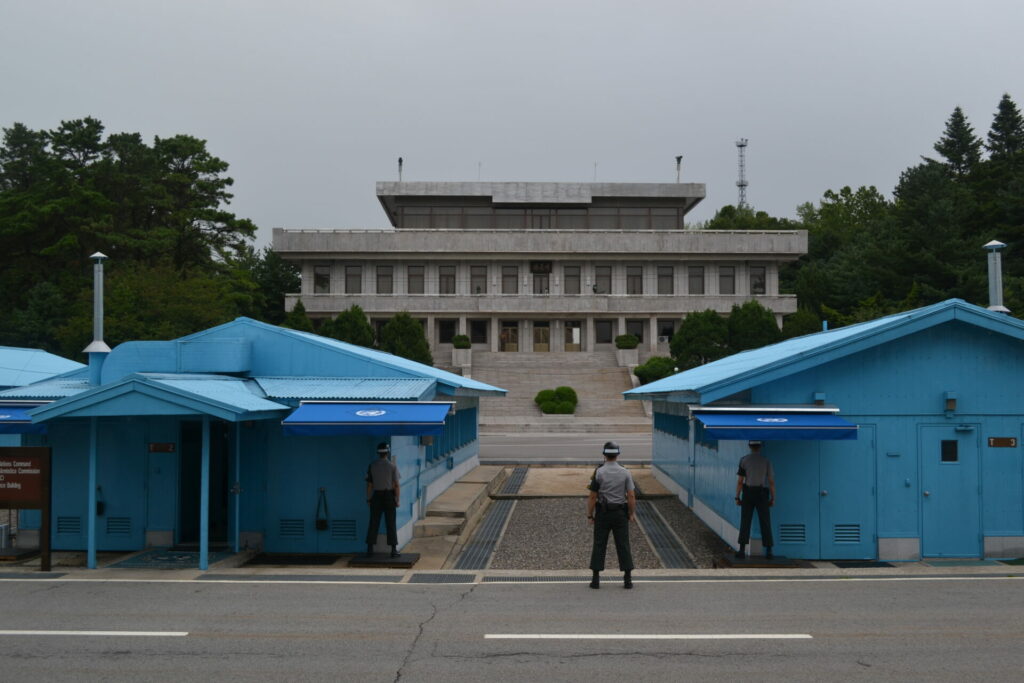North Korea has launched at least 23 missiles on Wednesday, with at least one falling less than 60 kilometres off the coast of the South Korean city of Sokcho.
In response, the South Korean air force has fired three air-to-ground missiles over the disputed Korean maritime demarcation line. This is one of the sharpest escalations in tensions on the peninsula in recent years. Later in the day, Pyongyang responded with six more missiles and a barrage of 100 artillery shells.
North Korea says that its missile exercise, which it calls Vigilant Storm, is in response to large-scale military exercises currently being held between South Korea and the United States – one of the largest joint exercises ever undertaken by the allied nations. North Korea sees them as an “aggressive and provocative” act.
The missile exchange prompted air raid sirens on the island of Ulleung, a territory controlled by South Korea. Residents were evacuated to underground bomb shelters. Though the missiles all landed outside South Korea’s territorial waters, the Sokcho rocket is the closest North Korea has ever come to violating South Korea’s waters.
Related News
- Russia buying artillery weapons from North Korea, says US intelligence
- France condemns North Korean law authorising preemptive nuclear strikes
Seoul has called North Korea’s missile launches an “unacceptable” breach of its territories. For its part, North Korea has launched a series of thinly-veiled nuclear threats towards Seoul, warning of “the most horrible price in history” if Korea and the US continue their joint military drills.
Tensions between the North and South have remained high since the end of the Korean War in 1953. No formal peace was ever signed between the communist-backed North and UN-backed South, leading to decades of hostility. The Demilitarised Zone, a 250 km-long buffer zone between the two Koreas, remains the most militarised international border in the world.

